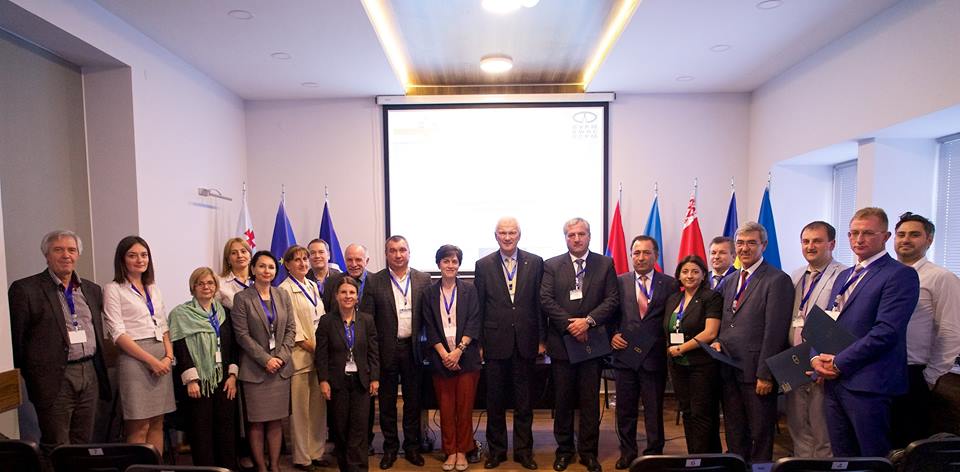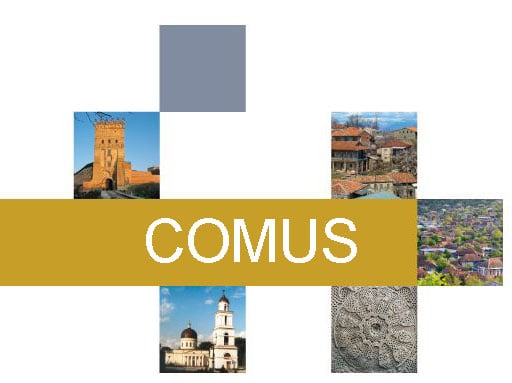COMUS Presentation

 Activities that started in January 2015, will continue until June 2017 in nine pilot towns: Goris and Gyumri (Armenia), Mstislavl (Belarus), Chiatura and Dusheti (Georgia), Soroca (Republic of Moldova), Pryluky, Lutsk and Zhovkva (Ukraine).
Activities that started in January 2015, will continue until June 2017 in nine pilot towns: Goris and Gyumri (Armenia), Mstislavl (Belarus), Chiatura and Dusheti (Georgia), Soroca (Republic of Moldova), Pryluky, Lutsk and Zhovkva (Ukraine).
In line with the common priorities of both the Council of Europe and the European Union to improve the living conditions of Europeans and the quality of their living environments, while giving citizens a more direct role in defining, deciding and implementing local economic development projects, COMUS is an opportunity to bridge heritage preservation concerns with municipal empowerment and economic growth.
From a European perspective, the richness and diversity of the heritage in these pilot towns is of major cultural significance, which in the present economic context and on-going societal transformations should represent an important resource. Heritage defines the attractiveness of these places which offers a competitive advantage for tourism and business development. COMUS activities are implemented in order to convince communities that even small local initiatives are better than inaction, and could open up more ambitious possibilities and partnerships.
In this context, COMUS focuses on the following challenges:
- Raising the importance of heritage as the first immediately available resource in historic towns, through the identification and interpretation of the towns’ distinctive features;
- Fostering an integrated approach by setting up synergies between all levels of authorities in order to combine their capacities in implementing common heritage-led urban projects;
- Managing existing urban constraints and pressures through the mobilization of available means for identified priorities;
- Introducing public debate and direct participation of inhabitants in the decision-making process together with elected representatives and technicians;
- Making the best of the existing urban fabric to foster a new kind of modernity through the adaptation and recycling of old buildings.
The partnership with the Organization of World Heritage Cities is generating opportunities for longer-term cooperation with other European historic towns. The COMUS experiences will be examples to inspire spontaneous projects in other towns in participating countries, but also in other international contexts, while impacting on existing national policies and intervention models to encourage local development processes.
Launch of the Eastern Partnership Culture Programme 2015-2018








